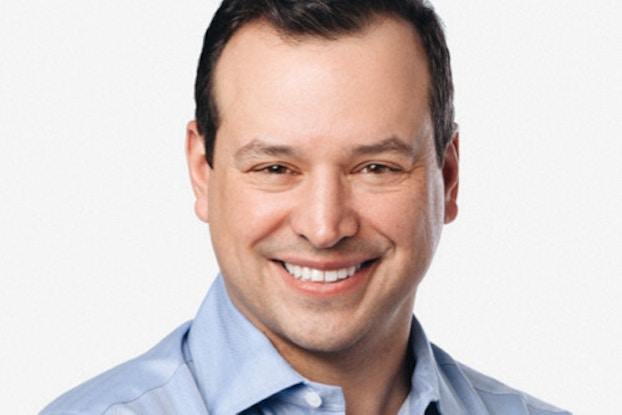
Why it matters:
- Startup founders that raised millions in funding approach the process as an exercise in relationship building.
- Casting a wide net by pitching hundreds of potential investors in an organized, methodical fashion is key to landing a “yes.”
- Researching companies that are similar to your business to identify their funding sources can also yield potential partners, founders said.
You can have a great business idea, but without money to get it beyond your head to actual customers, it may wind up being another woulda-coulda-shoulda-been product or service. Getting funding is critical. You can bootstrap and call on family and friends for financing, but that may not be enough to get you where you want to go.
Learning how to play and win the fundraising game is a must. Three entrepreneurs shared their successful strategies and wisdom for other startups and small business owners.

Pashion Footwear raised $3.7 million and counting: ‘Usually, you are one or two degrees of separation from investors,’ Haley Pavone, founder and CEO
Avid high-heel wearers might want to thank Haley Pavone, the founder and CEO of Pashion Footwear. She’s created what she calls the world’s first fully convertible heel-to-flat technology, transforming high-heeled shoes into flats and back again.
Pavone’s idea for the business started during a girls’ night out in 2016, dancing in 6-inch heels, that didn’t end well when she discarded her shoes into a pile of others on the dance floor. By the end of the night, another woman’s spiky heels found her bare feet.
That pain eventually led to profits, however, as it inspired the creation of a shoe with a heel that goes from flat and practical to high and sexy.
Pavone founded the company in 2016 as a 20-year-old college junior at California Polytechnic State University, studying business entrepreneurship. She knew she had a great idea; but convincing investors wasn’t easy.
“I didn’t fit the typical profile of a founder. I was a 21-year-old woman in college. Ninety to 95% of the people I pitched were men that were many years my senior. I had to fight to be taken seriously, even though I had the metrics behind me. I was pushing a female-focused product and I was a young woman. I got treated differently than a man would have,” Pavone said.
She says some industry experts laughed at her because they didn’t believe such a shoe could be made. “I just asked why they couldn’t and would steer the conversation in a positive direction.”
Being dismissed frequently didn’t boost her confidence. But she didn’t give up. She raised money from friends and family and in 2019 successfully raised $1.25 million, and late last year another $1.5 million. To date she has raised $3.7 million, and her design is patent pending in 30 countries.
Earlier this year, Pavone appeared on “Shark Tank,” but did not get a deal from them. Yet she managed to grow the business anyway. Pashion Footwear, which is sold online, has averaged 72% quarter-over-quarter net revenue growth since the start of last year. She is currently raising $5 million to support the company’s explosive growth by expanding its team, increasing product and development, and exploring retail opportunities, said Pavone. “We want to do some limited in-person sales, [which] could be pop-ups at bridals shops, for example.”
She’s learned much and has advice for entrepreneurs. “You only need one venture capitalist to say yes. You will have to pitch hundreds to find the right partner. Be organized [and] methodical to get through the numbers.”
At 20, she had no Rolodex. “Work your network. Tell everyone you know what you’re doing and ask who they know that does investments. Usually, you are one or two degrees of separation from investors.”
Pavone recommends that entrepreneurs research companies that are similar to theirs. See who they raised money from, but make sure they aren’t too competitive. For example, she looks at female-founded companies with a fashion focus. “People who invested in those types of companies might like my company, too,” she said.
Lastly, make no assumptions. Even if a conversation with a venture capitalist is going well, “don’t put all your eggs in one basket,” she said. “A deal is never closed until the money is in the bank. Keep other conversations going.”
Pashion Footwear’s latest funding round will enable innovations, like the launch of the company’s first boot, and a customized platform where women will be able to build their own shoes. Says Pavone, “Why not go for a metallic gold heel?”
[Read: How 4 Buzzy Minority-Owned Startups Scored Funding Windfalls]

Findhelp scored $27 million: ‘The best thing you can do as an entrepreneur is share your view of the world and how your own business can make a difference,’ Erine Gray, CEO
Findhelp aims to serve as the go-to source for help when a crisis strikes. Enter your zip code at findhelp.org and get information on free and reduced-cost resources for food, housing, transit, health, education, legal assistance and more.
The social care network has listings of more than 550,000 programs offered by organizations and nonprofits around the U.S. and about 200,000 people weekly connect to those programs for free.
The helping hand just got some help of its own. This summer, Findhelp, formally known as Aunt Bertha, snagged $27 million in new funding led by Warburg Pincus and existing investors like The Social Entrepreneurs’ Fund.
CEO Erine Gray says he didn’t come from wealth, and the concept of raising capital was intimidating. It was also complicated by the fact that Findhelp is a certified B corporation, meaning it is focused on making both a social impact and profit. “Some investors I initially pitched didn’t understand our industry and were skeptical that we could be successful building a business that assisted people in need and the people who serve people in need. One investor actually laughed at the idea,” said Gray.
Gray pressed on. “I learned that if you look at fundraising as simply building relationships, it takes the pressure off and allows both parties to get comfortable with each other and envision working together.”
Sometimes, entrepreneurs shy away from their vision because they feel like investors want to hear certain things. I recommend taking the opposite approach. Try to articulate your vision, even if it might seem crazy, and the right investment partner will present themselves.Erine Gray, CEO, Findhelp
The best thing you can do as an entrepreneur is share your view of the world and how your business can make a difference, he explained. “Sometimes, entrepreneurs shy away from their vision because they feel like investors want to hear certain things. I recommend taking the opposite approach. Try to articulate your vision, even if it might seem crazy, and the right investment partner will present themselves.”
It's about reputation and relationships. “As the largest social care network in the country, investors began to take notice. For the latest round, we were approached by Warburg Pincus in 2020. I really enjoyed each conversation with their team. As our conversations continued and relationships developed, we started to brainstorm about what we might be able to accomplish together.”
That $27 million will go a long way in fueling the company’s growth, Gray said. “The funding has allowed us to invest in building more product features and functionality, including the recently launched Marketplace, where community organizations and customers place social goods and services orders and get reimbursed for non-medical services, like grocery delivery for recently discharged or homebound patients and transportation to healthcare appointments.”
[Read: How Three Big Brands Turned Pandemic-Prompted Innovation Into Sales]

Abound landed $59.6 million, casting a wide net via Zoom: ‘We could do 10 pitches in a day without getting in a car or a plane,’ Bill Shope, co-founder and CEO
Bill Shope, co-founder and CEO of Abound, and his co-founders, Niklas de la Motte and Drew Sfugaras, were attuned to the explosion of direct-to-consumer brands. “Eventually, [we knew that] they would want retail distribution,” said Shope.
That’s where Abound found its niche, and in 2019 launched an online curated marketplace that takes much of the hassle out of buying and selling wholesale and provides independent retailers with the support and products they need to battle the best of the brick-and-mortar big guns. Abound handles promotion of your brand via email, as well as payment processing, returns and more.
“We wanted to make the digital experience better than trade shows,” said Shope.
That ambitious goal caught the attention of investors. In November, Abound closed this year’s second financing round of $36.7 million led by D.E. Shaw Group, adding to the company’s total funding of $59.6 million.
Since early 2020, the company has experienced a 20-fold increase in monthly sales volume. The online marketplace now offers more than 400,000 products, as well as a network of over 40,000 retailers in the U.S. and U.K.
Abound is shaking up the old school trade show model. With the infusion of capital, look for the company to hire aggressively, especially engineers, and to keep pushing the innovation envelope with business management tools to help brands manage their business on and off Abound’s platform, Shope said. He’s also bullish on the integration of live-selling events, as well as data analytics initiatives that will help retailers stay abreast of upcoming trends and develop new products.
While the fundraising paid off, the process was not painless. In each round, they met with more than 100 investors. Shope says a couple of things are working in the company’s favor: The market opportunity is large, and they are among the first in the game, factors that Shope says investors love.
With COVID, most encounters with investors were via Zoom. And although these virtual appointments can lack the intimacy of in-person meetings, “This allowed us to [cast] a wide net. We could do 10 pitches in a day without getting in a car or a plane,” said Shope.
In the end, Shope said they narrowed their focus on the investors that shared their values. “Understand it’s a match-making process on both sides,” he said. “You’re going to be dealing with each other.”
His best advice: “Meet as many people as possible. In most cases, you’ll be talking to smart people. Pay attention to the questions they ask, the critical feedback and the advice they share. Take that with you. They add value even if they don’t get involved with your company.”
CO— aims to bring you inspiration from leading respected experts. However, before making any business decision, you should consult a professional who can advise you based on your individual situation.
Follow us on Instagram for more expert tips & business owners’ stories.
CO—is committed to helping you start, run and grow your small business. Learn more about the benefits of small business membership in the U.S. Chamber of Commerce, here.









